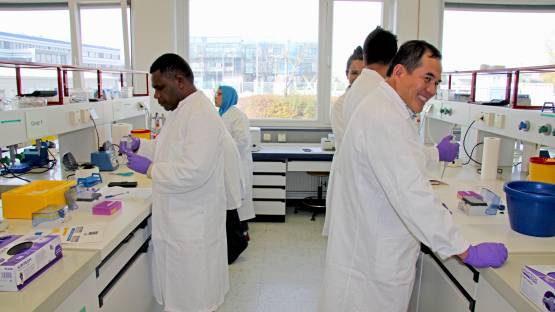Climate change poses increasing risks to the entire global community, but its impact is particularly pronounced in Small Island Developing States (SIDS), whose isolation, smaller geographic size and direct exposure to sea-level rise and storm surges have exacerbated the effects of a changing climate. From 14 to 24 October, trainees from five SIDS in the Asia and Pacific region gathered at the FAO/IAEA Plant Breeding and Genetics Laboratory in Seibersdorf, Austria, to strengthen their skills in the use of a nuclear technique to develop new, more resilient plant varieties.
Excessive rains and flooding, drought and rising temperatures, salt-water intrusion caused by sea level rise, coastal erosion, unpredictable storms and extreme weather events—these are some of the climate-related challenges faced by SIDS. These trends have had severe effects on agricultural output in the Pacific region: Yams and sweet potato harvests are failing due to persisting droughts, breadfruits are blown away by strong winds and coconuts are increasingly succumbing to bacterial parasites.
“Many people in my country are dependent on agricultural production and live at the semi-subsistence level of farming, often relying on their produce as a cash crop destined for export markets,” said Sufuawana Safara Hussein of the Fijian Ministry of Agriculture’s Sigatoka Research Station. “Changes in weather patterns affect seasonal cropping, the availability of certain foods and market prices.”






